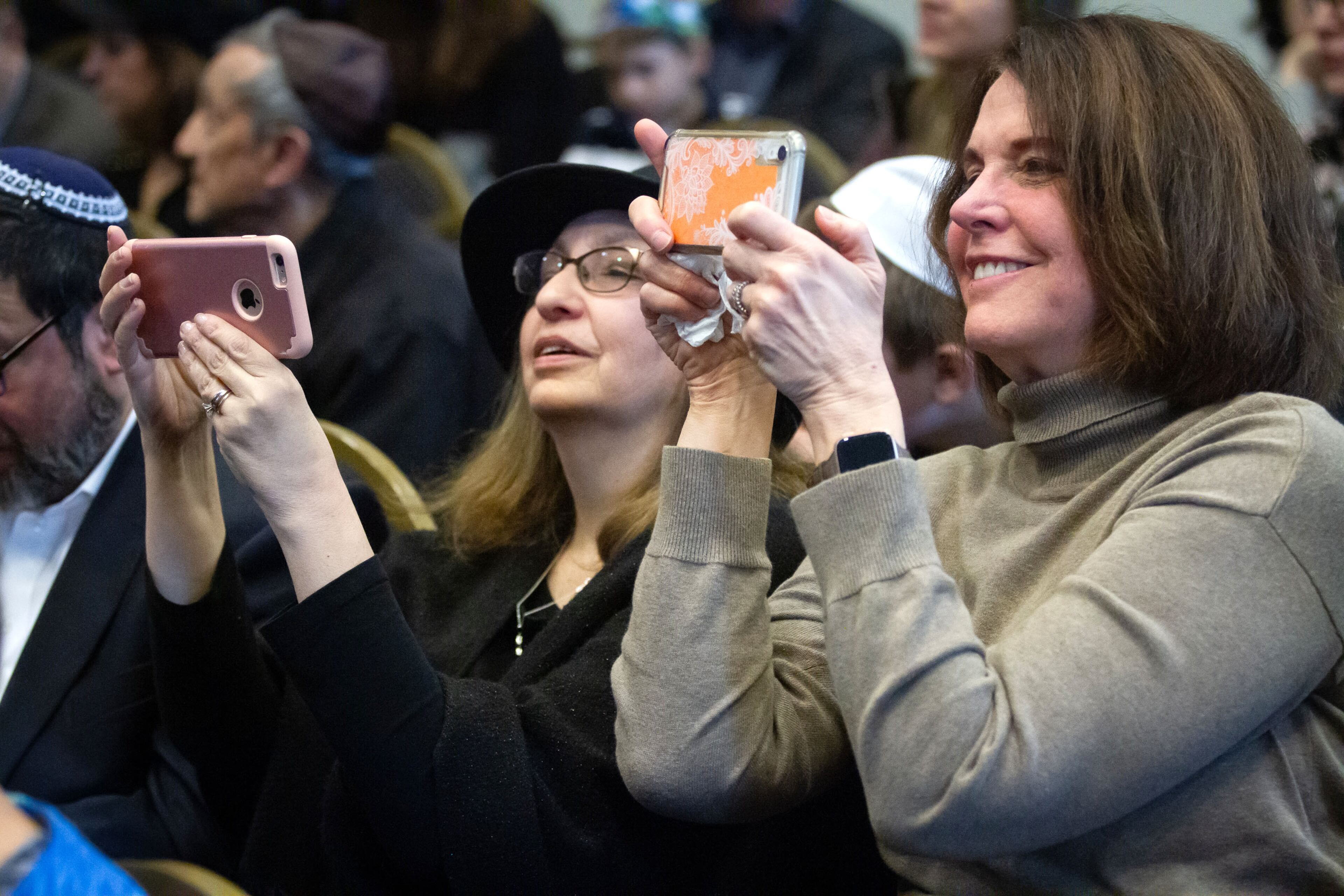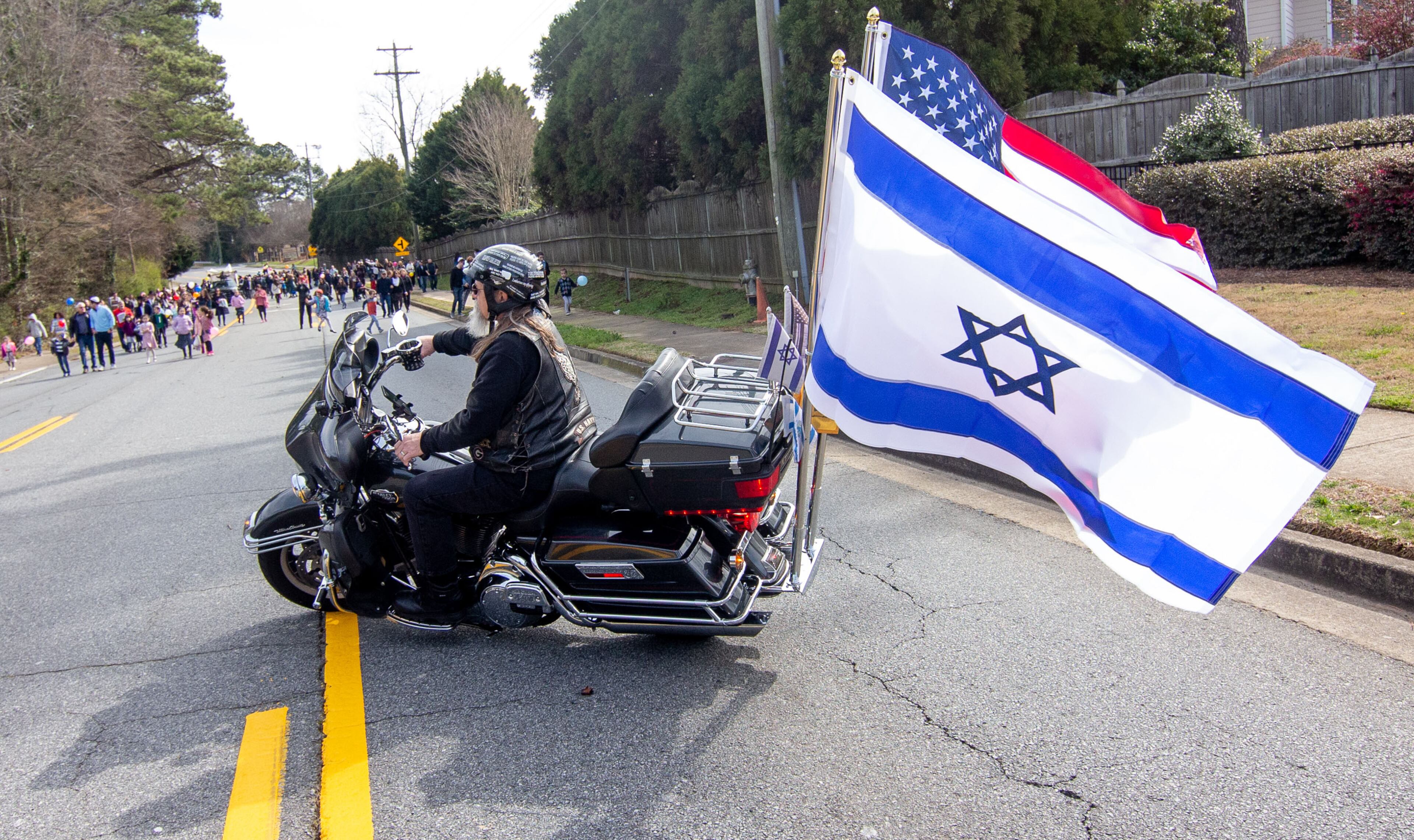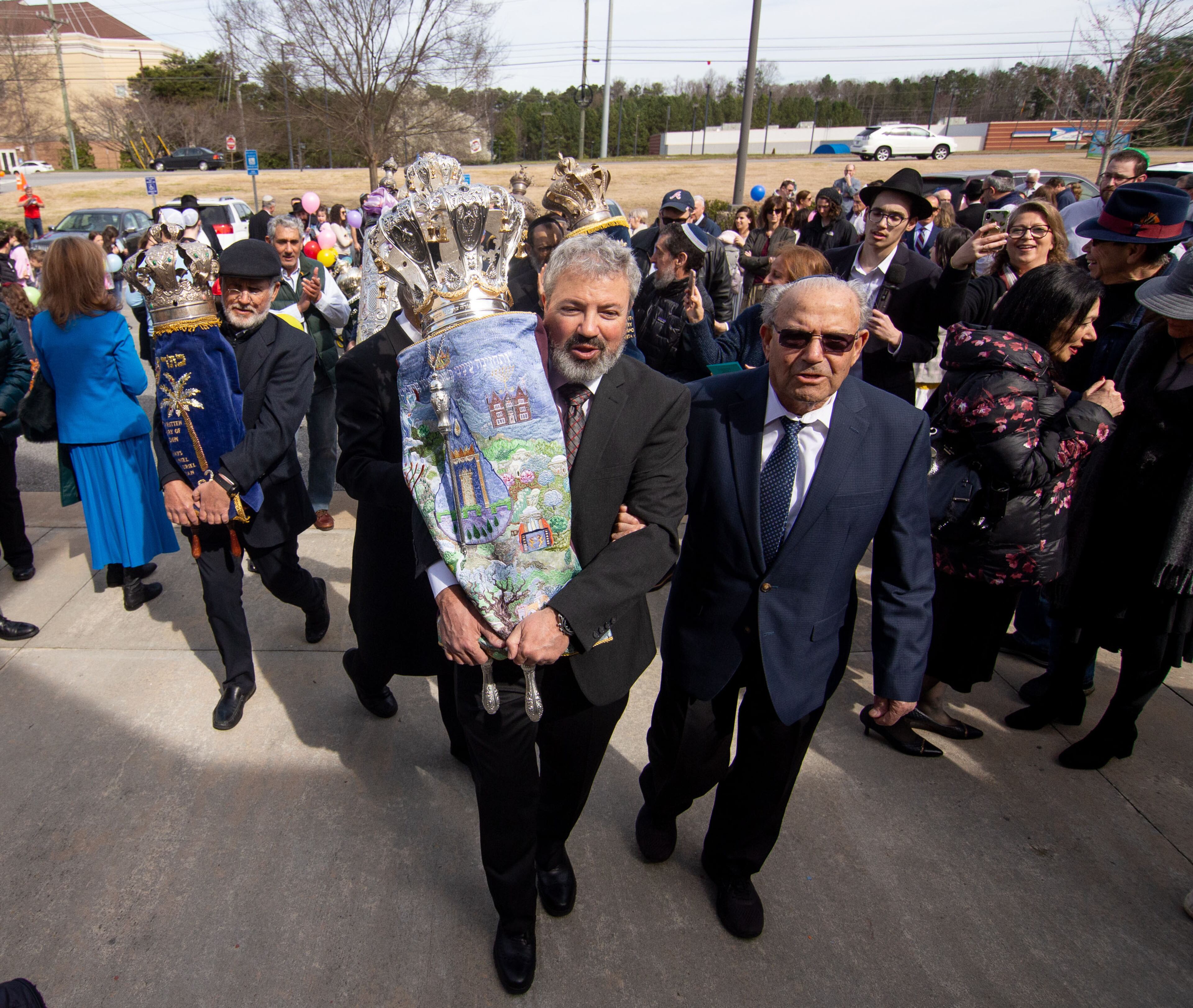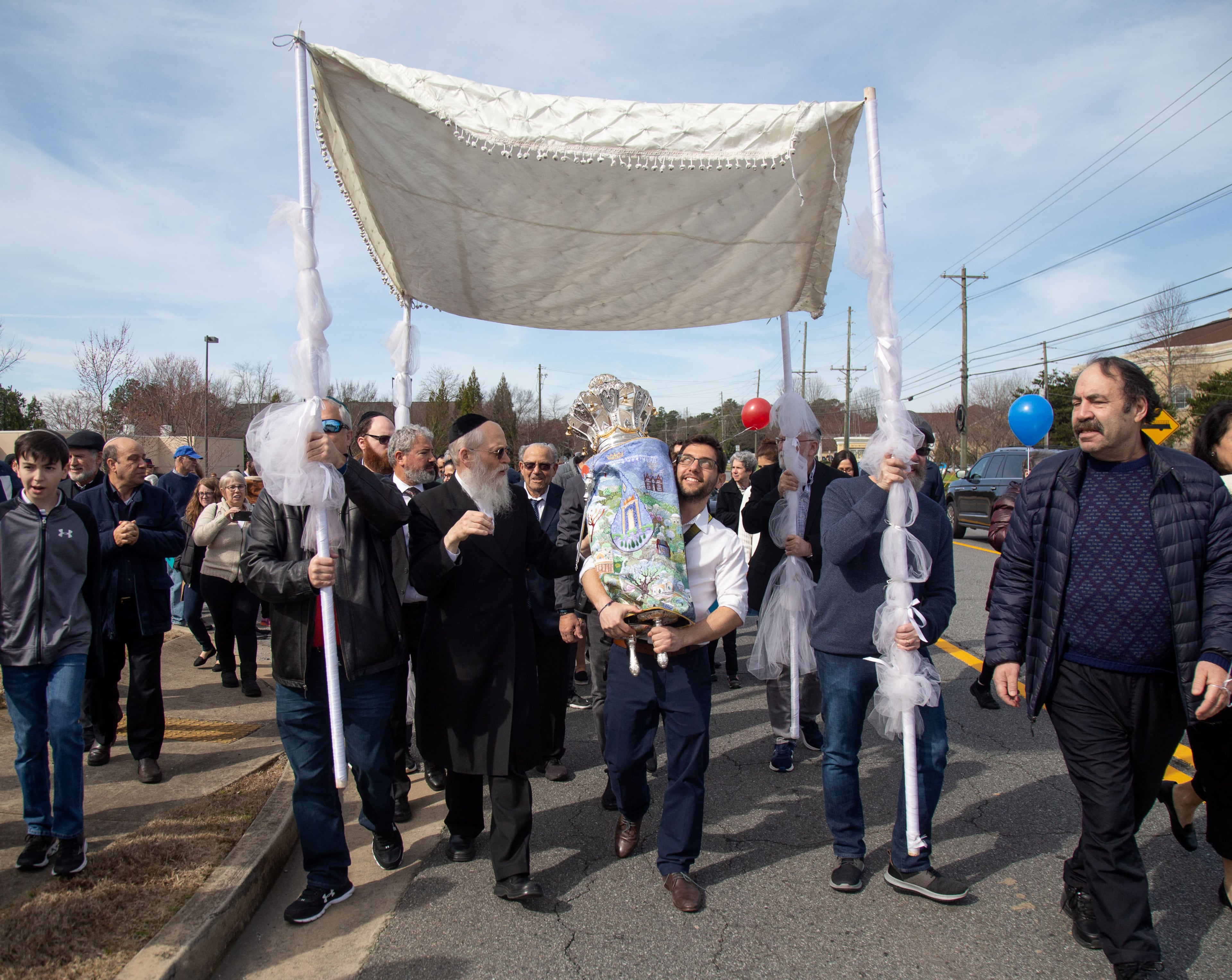Cobb synagogue celebrates arrival of unique Torah



















More than 200 faithful members of Chabad of Cobb County watched Sunday as one of their members scratched the final Hebrew letter onto a broad scroll using a feather quill and black ink.
With the final stroke, the crowd broke into sustained applause and joyful singing. That the synagogue’s new Torah scroll was complete was cause enough for celebration, but this scroll is considered unique because it was written, in part, at the historic sites where the Scriptures say they occurred.
“There has never been a Torah written like this in over 3,000 years,” said Noah Pawliger, a member of the congregation.
The creation of any new Torah scroll is a journey. They must be handwritten according to specific rules and only by specially trained scribes.
“It’s a work of art,” said Rabbi Ephraim Silverman. “It takes more than a year to write.”
With such an investment, Silverman said a working group met to discuss how to “bring the stories alive (in a) more vivid and profound way.”
The idea they came up with was as audacious as it was clever: The scribe would transcribe the entire Torah, but leave blanks where the verses of select stories would go. Then the rabbi, the scribe and a delegation from the Cobb congregation would travel to Israel and complete the scroll in the geographic spots where the events took place.
“The question, of course, is how do you do that?” Silverman said.

The group made the trip last summer, traveling to places described in the scroll’s five books, which also comprise the first five books of the Christian Bible. A video produced by the synagogue shows both the reverence and joy of what Silverman described as “a whirlwind of a trip” over four days.
For Silverman, the most profound stop may have been in the Hebron in the West Bank at the Cave of Machpelah, the tomb of Abraham, Sarah, Isaac, Rebekah, Jacob and Leah — the founding figures in Judaism — and a site similarly revered in Islam.
“To be there where they are buried,” he said. “These are the matriarchs and patriarchs of our traditions. It’s hard describe being there, and writing these words — it’s very, very special.”

Silverman said he hopes the completed scroll will make the ancient lessons and tales more relevant to modern eyes and ears. Children, in particular, need to know these stories are grounded in a place and time that speaks to their history and identity, he said.
“They have read these stories, but it’s almost like a fantasy, a fairy tale,” he said.
This new Torah grounds those tales in a contemporary context.
“There’s a reality to it,” Pawliger said. “It just brings more truth to what is going on in the Torah.”

On Sunday, congregants celebrated the completion of the scroll with a parade through the synagogue’s East Cobb neighborhood, a public statement of their heritage some found almost as meaningful as the scroll itself.
Silverman said there are plans to tour the scroll around the world, giving other congregations and religious groups an opportunity to view this “modern-day relic” meant to bring an ancient tradition into a contemporary context.


